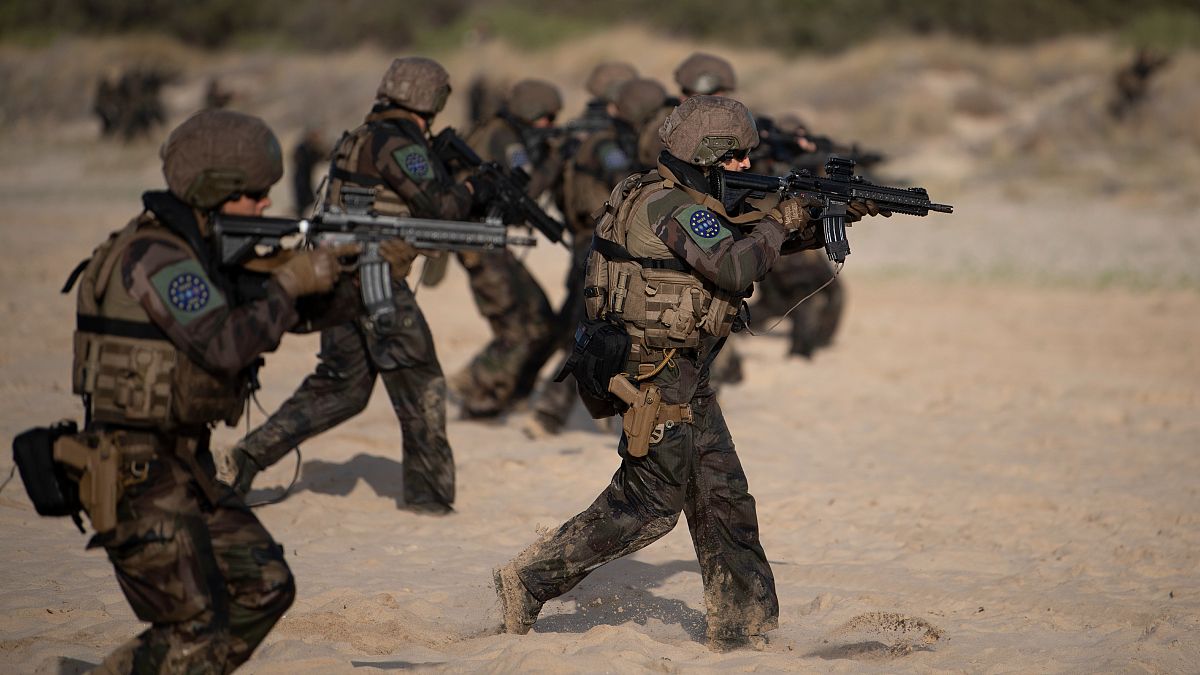EU defence a priority even for eurosceptics: exclusive poll
Nearly half of Europeans agree Brussels should sharpen its military strategy, as the bloc faces up to a belligerent Russia and wavering US. More than one third of the most eurosceptic voters believe the EU should prioritise a common defence policy, an exclusive poll produced for Euronews shows. An Ipsos survey of 26,000 of the […]


Nearly half of Europeans agree Brussels should sharpen its military strategy, as the bloc faces up to a belligerent Russia and wavering US.
More than one third of the most eurosceptic voters believe the EU should prioritise a common defence policy, an exclusive poll produced for Euronews shows.
An Ipsos survey of 26,000 of the EU electorate showed nearly half favour pooling military powers – a result that will likely come as a comfort to European Commission President Ursula von der Leyen, who’s made defence a central plank of her re-election campaign.
The poll, which probed views in countries representing 96% of the EU population ahead of bloc-wide elections due in June, showed voters are most concerned about inflation, inequality and migration.
But strengthening defences would still be more popular than sending aid to war-torn Ukraine, or protecting minorities, the survey showed.
Many EU states are starting to build up their militaries after full-scale war broke out in Ukraine, and given signs that a Donald Trump-led US might show less commitment to NATO.
While more of an economic and regulatory superpower than a military one, the EU has started looking to make arms procurement more efficient, and EU Single Market Commissioner Thierry Breton has even mooted a €100bn defence fund.
Stronger EU defence is particularly popular in countries such as Finland and Poland, the survey said – perhaps because Russia’s neighbours are worried about its increased belligerence.
But there’s far lower support in Hungary, whose government has repeatedly blocked sanctions on Russia and support for Ukraine – and in Austria, whose constitution safeguards neutrality.
Support is highest among voters older than 50, and in the centrist parties that are likely to support von der Leyen’s candidacy for a second term in office.
But it’s also surprisingly strong among those normally wary of handing powers to Brussels. Nearly half (45%) of European Conservatives and Reformist (ECR) voters and more than one in three supporters of the more nationalist Identity and Democracy (ID) group favour heightened military policies.
“Common defence of European borders and interests is one of the few things the European Union is useful for,” lawmaker Nicola Procaccini (Italy/ECR) said during a February debate.
But von der Leyen’s promises to Europeanise defence spending could face headwinds, as in the past it’s always been member states that raise armies.
Europe becoming a defence superpower is a “direct attack on the sovereignty of our nations”, said Jean-Paul Garraud (France/ID) during the same debate, adding: “Soldiers aren’t ready to die for Europe.”
That scepticism is shared by those planning to vote for the far left, whose 2024 manifesto – for an alliance that includes numerous Communist parties and Germany’s Die Linke – commits to reducing military expenditure and freeing Europe of nuclear weapons.














